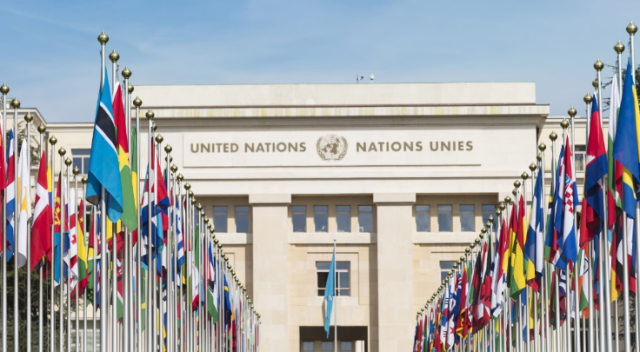... As floods displace many people since April 2020
The impact of flood has rendered many Nigerians homeless with some having solace in IDP camps.
The increasing impact of floods on people’s lives, livelihoods, and food security across Nigeria has hit the peak especially during the rainy season.
To tackle this menace, the UN’s Central Emergency Response Fund (CERF) has released US$5 million to scale up the flood response and address critical needs in three of the most flood affected states in Nigeria – Borno, Bauchi and Sokoto.
The announcement became pertinent to tackle the flooding situation in the worst hit states.
Report has it that more than 300 people have lost their lives, with at least 1.2 million people are affected by flood in 31 states.
The National Emergency Management Authority (NEMA) also reported that thousands of hectares of crop lands had been damaged ahead of harvests.
United Nations Resident and Humanitarian Coordinator in Nigeria, Mohamed Malick Fall, said, “Floods across Nigeria have created a crisis within a crisis.
"Millions of people were already facing critical levels of food insecurity before the floods because of economic hardships that have made it exceedingly difficult for the most vulnerable to feed themselves and their families. The floods have compounded people’s suffering.”
According to a statement by the United Nations Office of the Coordination of Humanitarian Affairs (OCHA), "As of mid-September, the Food and Agriculture Organisation (FAO) estimated that crop losses due to floods in Borno, Adamawa and Yobe (BAY) states were equivalent to an amount of food that could feed 1.4 million people for six months.
"Nationwide crop losses could feed 8.5 million people for six months. To mitigate the flood impact, there is a need for extended lean season support and a scale up of emergency agriculture activities, where possible."
The statement read, "the CERF funds will help humanitarian partners reach 280,000 people in Borno, Bauchi and Sokoto states with food, clean water, sanitation, and shelter support.
"The funds will also help to rapidly mobilise resources to bolster access to healthcare, including efforts to prevent the spread of waterborne diseases such as cholera. The response will include the use of multipurpose cash assistance (MPCA) and cash for work programmes to help affected people earn an income.
"The funding will also enhance protection services, including support to women and girls and services for gender-based violence (GBV), as well as support to people living with disabilities.
“This CERF allocation is a much-needed boost to the joint efforts of humanitarian partners in Nigeria in support of the Government-led response. However, the CERF funds and the previous allocation from the Nigeria Humanitarian Fund (NHF) are insufficient to meet the scale of needs.
"What is required right now is the immediate mobilisation of additional resources by donors, development partners and the private sector as the emergency response transitions to the recovery phase in some affected areas.”
The statement noted, "The CERF funds complement a $6 million allocation from the NHF for the BAY states, where more than half a million people have been affected by floods.
"In addition to the flood impact, the BAY states are experiencing cholera outbreaks that have claimed dozens of lives at the height of a food security and malnutrition crisis that is projected to affect five million people through October.
"The NHF funds and resources from the US funded Rapid Response Fund, managed by the International Organisation for Migration (IOM), are supporting interventions in water and sanitation hygiene, shelter, and non-food items as well as MPCA in Borno."
It further said that other ongoing UN assistance included food and nutrition assistance, emergency healthcare (including mass cholera vaccination campaigns and sexual and reproductive health services), emergency shelter and family tracing and reunification.




















